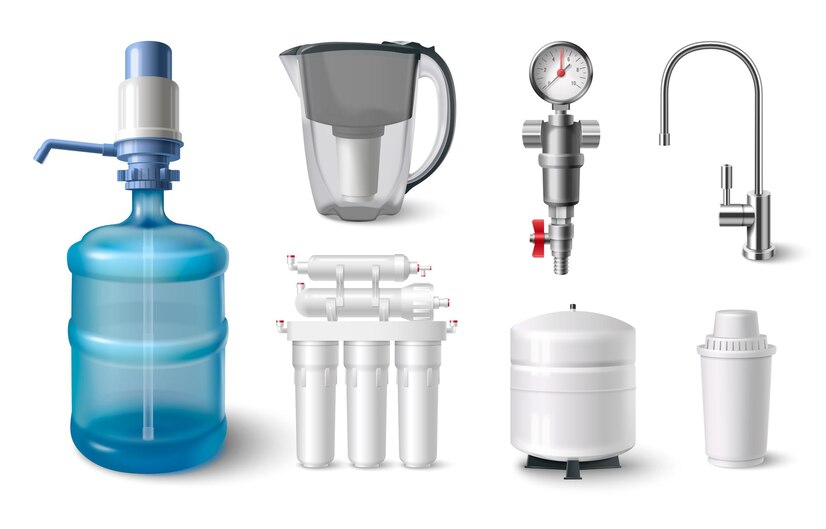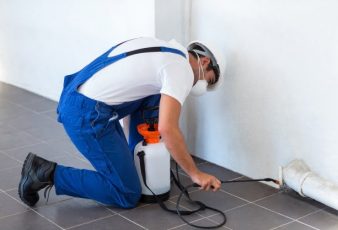Clean and safe water is vital for our health and well-being, and ensuring that your entire household has access to purified water is an intelligent choice. A whole-house water filter can be a valuable investment to achieve this goal. These filtration systems are designed to remove contaminants, improve water taste and odor, and protect your appliances and plumbing.
However, when you buy a whole house water filter can be a daunting task, given the variety of options available in the market. This comprehensive guide will provide essential tips to help you make an informed decision when purchasing a whole-house water filter.
What Is A Whole House Water Filter System?
The whole house water filtration system is one system that traits the water from the main water line. It ensures pure and filtered water flows from all the taps, showerheads, and even the washing machine. The whole house water filters are the points of the entry filters. They are the gateways for your tap filter, allowing only filtered water to flow from the taps.
Function Of The Whole House Water Filter System
The whole-house water-filtered systems are highly effective for a common household, and one can not doubt their efficacy. This system completely removes the contaminants. You can remove the hardness of your domestic water supply according to your requirements to ensure that you get optimum quality water for drinking and other purposes.
The home water system varies in complexity. They are good enough to provide you with highly effective protection against all domestic water issues. And at the same time, offer you the solution to your problems.
Essential Tips To Consider When You Purchase A Whole House Water Filter
You have a good idea of the whole house water filter by now. They are highly specialized to serve your requirements. Moreover, you have a wide range of whole-house water purifiers like water softeners, UV protection systems, etc.
However, you can consider some of the essential tips when purchasing one for your home.
Know Your Water Quality
The first step in selecting the right whole-house water filter is to understand the quality of your water supply. Water quality can vary significantly depending on location, water source, and potential contaminants.
You can start by obtaining a water quality report from your local water utility or conducting a water test. This will help you identify the contaminants in your water, such as chlorine, sediment, heavy metals, bacteria, or chemicals.
Determine Your Filtration Needs
Once you know your water quality, you can determine your filtration needs. Different water filters are designed to target specific contaminants. Common filtration technologies include reverse osmosis, activated carbon filters, ultraviolet disinfection, and sediment filtration.
Consider the most prevalent contaminants in your water and choose a filtration system that can effectively remove them. Additionally, consider factors such as water flow rate and filter capacity to ensure the system can meet your household’s demands.
Choose The Right Filter Size
Selecting the correct filter size ensures your whole house water filter performs optimally. The filter size depends on your water usage and the flow rate of your plumbing system. A professional plumber can help you determine the appropriate filter size based on your household’s water consumption and the number of bathrooms and fixtures in your home.
Research Filter Types
Various types of whole-house water filters are available, each with advantages and disadvantages. Some common types include:
- Sediment Filters: These remove larger particles like sand and silt but may not be effective against smaller contaminants.
- Activated Carbon Filters: Ideal for removing chlorine, bad taste, and odors, but may not be as effective against heavy metals or bacteria.
- Reverse Osmosis Systems: Highly effective at removing a wide range of contaminants, but can be costly and may result in reduced water pressure.
- UV Filters: Effective at killing bacteria and viruses but may not remove chemical contaminants.
Research and compare these filter types to find the one that best suits your water quality and filtration needs.
Consider Maintenance Requirements
All water filters require maintenance to ensure they continue to function effectively. Research the maintenance requirements for the filter system you are considering, including how often you need to replace filter cartridges or perform other maintenance tasks—factor in the cost and availability of replacement parts and cartridges when deciding.
Installation And Professional Help
While some whole-house water filters can be installed as DIY projects, many require professional installation. Consider your plumbing skills and the system’s complexity before installing it yourself. Hiring a professional plumber ensures the filter is correctly installed and integrated with your plumbing system.
Budget And Cost Of Ownership
When purchasing a whole-house water filter, it’s essential to consider the initial purchase cost and the long-term cost of ownership. This includes the cost of replacement filters, maintenance, and any additional plumbing work required for installation. Determine a budget for the upfront investment and ongoing expenses to make an informed decision.
Read Reviews And Seek Recommendations
Before making your final decision, read customer reviews and seek recommendations from friends, family, or online communities. Real-world experiences from other users can provide valuable insights into the performance, reliability, and satisfaction levels associated with different whole-house water filter brands and models.
Warranty And Customer Support
Check the manufacturer’s warranty to ensure protection in case of defects or malfunctions. Additionally, consider the quality of customer support the manufacturer or retailer provides. Prompt and helpful customer service can significantly affect your overall satisfaction with the product.
Check For Certifications
Look for water filter systems certified by reputable organizations such as NSF International or the Water Quality Association (WQA). Certification indicates that the system has been tested and proven to meet specific quality and performance standards.
Conclusion
Investing in a whole-house water filter is wise to ensure your family’s access to clean and safe water. By following these essential tips, you can make an informed choice that matches your water quality, filtration needs, and budget. Remember to research, compare options, and consult with professionals to find the right whole-house water filter to provide your household with clean and healthy water for years. Your health and the longevity of your plumbing and appliances will thank you for it.
Additional:




























